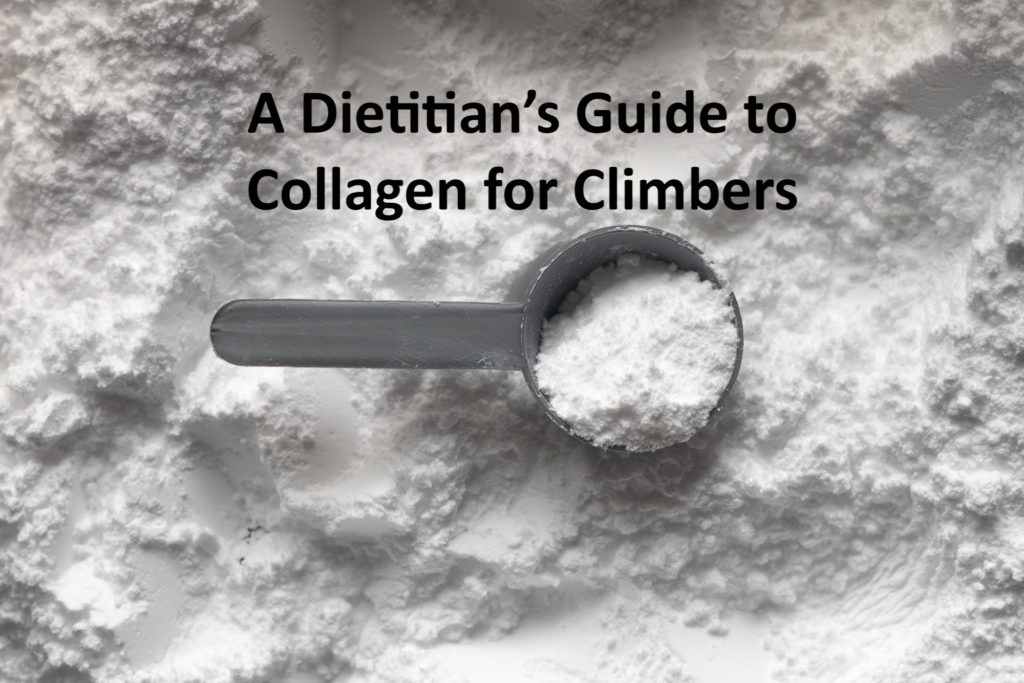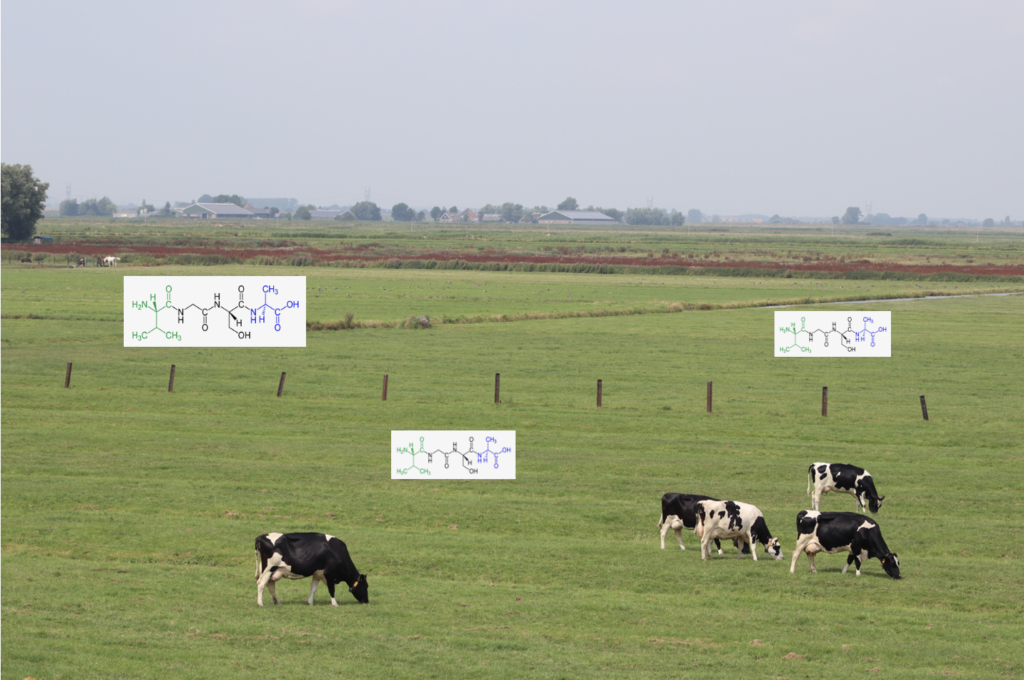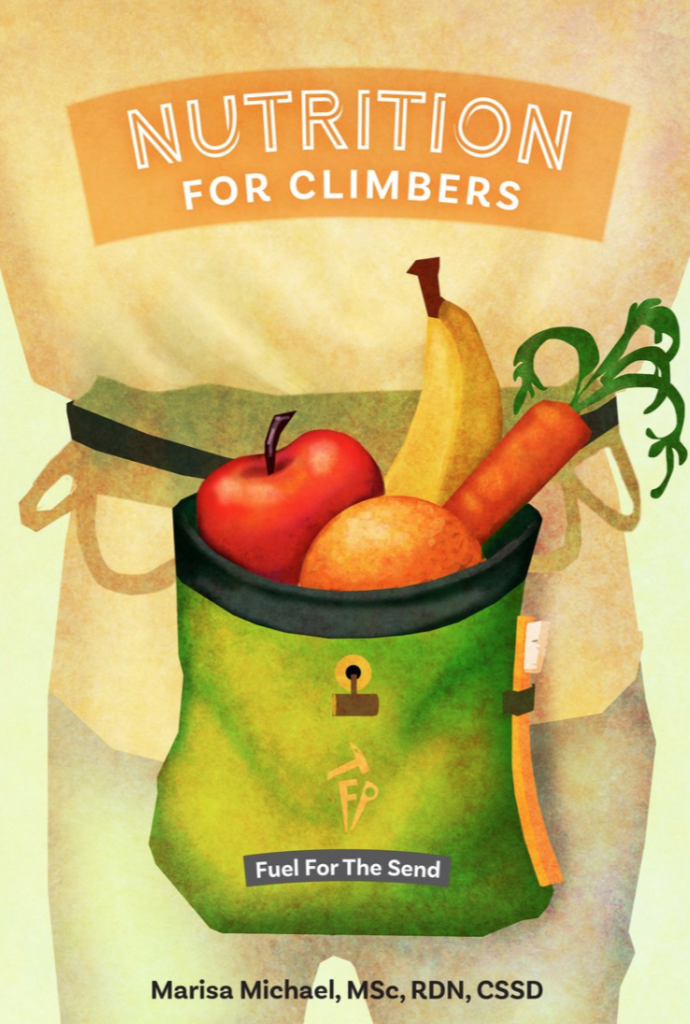Collagen seems to be a really popular topic right now. I keep seeing climbers post on social media questions like,” Do I need collagen? It seems useful. Will it really help?”

What are the claims around collagen supplementation?
There are a lot of claims around collagen, ranging from improving skin, hair, and nail health, to helping prevent tendon injury, to improving bone density and joint pain. For the purpose of this blog post, we’ll focus on what collagen may be able to do for climbers. Sure, you may want luxurious hair, but what about skin healing and tendon/ligament health? That’s probably more important to you as a climber.
What is collagen?
Collagen is an abundant protein in your body. It is part of the structure of bones, muscles, skins, tendons, and ligaments. Research suggests it may help with bone health, tendon and ligament health, and skin elasticity. Here’s a nice quick read on collagen supplement basics. And here’s a really beautiful and comprehensive read on collagen for injury prevention.
Collagen (a common brand is Vital Proteins ) is made up of bovine (cow) hide (they also have a marine version). Some is made of skin, bones, and fish scales. Clearly, this is not a vegan or vegetarian product!
The structure of a tendon is made up of a triple helix composed three amino acids: hydroxyproline, proline, and glycine. The uniqueness of collagen supplement seems to be that these three amino acids in high amounts are possibly useful for soft tissue health when you orally supplement.
It could be potentially be tough to get these amino acids in the right amounts just through diet, especially if your tendons are injured and may have increased need. Dietary sources of glycine include meat, fish, dairy products, egg whites, bone broth, and chicken and pork skin. Your body also makes its own glycine.
Is all the collagen hype backed by research? Read on, my friends.
What is the current research around collagen for athletes?
We’ve got a little bit! It seems that the hype, marketing, and products are way beyond the actual research. What we do have is mixed in terms of outcomes, but much more is needed.
Collagen may benefit athletes by:
- Strengthening or thickening tendons and ligaments
- Decreasing knee pain in one study
- Possibly decrease injury rate
- Potential for aiding in skin wound healing
What other nutrients are important for tendon health?
Vitamin C is important. It aids in collagen synthesis. Meaning, if your body is trying to build up collagen in your soft tissue, it needs vitamin C to do it. Current research suggests taking vitamin C with collagen (recommendations range from about 15-500 g). Food sources of vitamin C include oranges, strawberries, peppers, broccoli, potatoes, and more.
Copper is also an important nutrient for collagen synthesis. It helps build the collagen structure in your body. If you are not deficient, there is no additional advantage to adding more copper. It’s only useful if you were already deficient and then corrected that deficiency. Food sources of copper include shellfish, seeds, nuts, wheat bran, and chocolate (Heck yeah!).
Overall adequate calorie intake is also really important. If you are dieting, going through an eating disorder, or even inadvertently not eating enough, your tissue health can be compromised. Your body needs enough energy in the form of food/calories in order to fuel your workouts and recover, rebuild, and repair after the workout. Collagen supplements may not do much if your body is struggling to get enough overall calories.
Other nutrients important for general injury treatment and prevention:
- Vitamin A
- Zinc
- Glutamine
- Arginine
- Glucosamine
- Vitamin D
- Calcium
So you can see that narrowly focusing on just collagen may not be the best thing for your overall tendon health. A food-first philosophy will help you get a wide range of nutrients to keep your body healthy. In general, eating high-quality protein (lean meat, chicken, fish, eggs, dairy), whole grains, nuts & seeds, fruits & vegetables, and legumes is a great way to get the nutrients your body needs.
How much collagen do you need to take to see results?
Most research shows you need to take around 10-20 g per day, along with the vitamin C (doses in the research vary–probably around 50g is adequate). This may need to be done for at least 12 weeks consistently to see any results. Take it 30-60 minutes before your training or physical therapy session. The loading stimulus of the workout helps strengthen tendons.
I’ve seen some food products where they add collagen (marketing hype much?) and it’s not even a therapeutic dose. Like this Skinny Pop popcorn (face palm). Similarly, I’ve seen a lot of influencers and well-meaning nutritionists create recipes using collagen powder, like collagen energy bites, cookies, muffins, and pancakes. But if you only use one scoop of collagen (10 g) for the whole recipe, you’re not getting the adequate dose of collagen to do anything meaningful for your tendons.
And no, do not mix your pricey PhysiVantage collagen supplement (which includes vitamin C) with hot coffee as they suggest. Heat destroys vitamin C. So you paid a premium for vitamin C to be added to your collagen, and then you just obliterated it.
When your aim is to support general athletic health and muscle health, collagen is far inferior to whey. Whey and other complete proteins from animal sources contain higher amounts of leucine, a key amino acid that signals muscle protein synthesis. You need ALL amino acids to repair and rebuild muscle adequately, and leucine in good amounts. You would need five servings of collagen to get the same amount of leucine as one serving of whey.
What collagen product should I use?
There are a few of them out there! Using a hydrolyzed collagen is recommended, since it dissolves nicely into liquids and smoothies, and it also is already broken down for easy absorption.
I recommend only using products that are NSF Certified or Informed Choice certified. This means they have been third-party tested for contaminants. Supplements are notorious for being contaminated with banned substances, heavy metals, and more.
Some NSF Certified collagen products:
- Bubs Naturals ($43 for 20 oz, or $2.15 per oz)
- BioSteel ($24 for 7 oz, or $3.42 per oz)
- Gnarly Collagen Pro ($45 for 16 oz, or $2.80 per oz)
- Klean Athlete ($37.60 for 12 oz, or 3.13 per oz)
- Vital Proteins ($25 for 10 oz: $2.50 per oz on their website. Costco sells it for $36 for 24 oz, which is $1.50 per oz.)
PhysiVantage, which I am including because I see a lot of questions about this product, is a popular collagen supplement marketed toward climbers, is $45 for 16 oz, or $2.81 per ounce. It is not third-party tested. It claims to be “supercharged” because it has added vitamin C, tryptophan and leucine, making it a complete protein. However, if you’re already eating a nicely balanced diet, you’ll be getting these amino acids and vitamin C from other sources. It’s not necessary to spend extra money to get this collagen supplement.
Not only is collagen research in its infancy, with limited studies (and the studies themselves having only about 10 subjects), but it’s a stretch to say you need to add amino acids to collagen. There are no studies examining if the Gnarly or PhysiVantage product is superior (or equal to, or inferior to) collagen or whey or anything else. There’s no research on it period. Full stop. Their claims about its (potential) efficacy stem from plain collagen research, not collagen with amino acids, vitamins, or minerals added to it.
This most recent study showed that there is no advantage to taking collagen for muscle connective tissue synthesis.
It’s difficult to tell from the PhysiVantage supplement label how much leucine it contains. Leucine, a key amino acid involved with signaling muscle protein synthesis, is well-researched as a useful component for muscle strength, rebuilding, and repair. It is found in high-quality whey protein powders. A dose of around 2 grams of branched-chain amino acids (BCAAs) is good. Two grams of just leucine–comparable to what’s in whey–is even better. PhysiVantage has 1.6 g of BCAAs + tryptophan (according to the label), so that’s not great.
Gnarly Collagen Pro, which is also heavily marketed toward climbers, has vitamin C and zinc added to it. Worth noting is that long-term zinc supplementation may cause anemia and copper deficiency. It can also interact with some medications, including antibiotics and diuretics.
I wouldn’t recommend taking a product long-term that has a mineral added unless you know you are deficient and/or unable to get it from the diet. Also, this line on their packaging made me chuckle, “Pasture-raised peptides.” What is that even supposed to mean? As if a bunch of peptide molecules are happily hanging out in a green pasture under blue skies, frolicking about. Marketing madness at its finest. I do give Gnarly credit for being NSF Certified for Sport. Nice touch.

Here’s a breakthrough idea: YOU DON’T HAVE TO USE A SUPPLEMENT THAT IS MARKETED JUST TOWARD CLIMBERS! Look at that price list above. If you’re going to use collagen, pick the one that is third-party tested and the cheapest. Hint: It’s not Gnarly or PhysiVantage.
I usually advise my clients that if they have the budget and desire to try collagen, that’s fine, go for it. It’s simply a protein. It will have little or no side-effects (besides a lighter wallet).
If you want a complete protein, eat food. It comes with not only all those wonderful amino acids, but also flavor, fats, carbohydrate, fiber, antioxidants, phytochemicals and other nutrients useful for health.
- Two eggs have about 2.7 g BCAAs (cost ~$0.50)
- 3 oz cooked chicken breast have about 4.87 g BCAAs (cost ~$0.50)
- 16 oz milk has about 3.3 g BCAAs (cost ~$0.50)
If you need a protein powder (there’s a lot of reasons you may want one), use whey if you are not vegan. This is the gold standard and has a tremendous amount of research backing it up. If you are vegan, use a protein blend. And check out this article on vegan nutrition for climbers while you’re at it.
If you want a protein powder for traditional muscle recovery and building, don’t use collagen (nope, not even the “supercharged” stuff). If you want a supplement that MAY help with soft tissue health, you can TRY collagen if you have the budget for it. Be sure to take it with vitamin C before a workout at the correct dose for at least 12 weeks. Otherwise, just eat food!
Do yourself a favor and download the free NSF Certified for Sport app. Nope, I have no affiliation with them, I just think it’s a great app. Use it for any supplement you use and make sure it’s safe and clean. Especially if you’re a competitive athlete subject to doping tests, you NEVER want to use something that isn’t third-party tested for anti-doping standards.
I actually don’t have an affiliation with any supplement company, which is why I am able to write this post. You’re welcome!
Is there a less pricey alternative to collagen?
Good ol’ plain gelatin. Yes, it’s true. You can mix two small packets of unflavored gelatin with Gatorade or anything else and drink before training (gives you around ~15 g). Add in a vitamin C gummy and you’re good to go. You can also try homemade gummies (you would need to eat a 1/2 recipe to get the right dose of gelatin).
Two unflavored gelatin packets cost about $0.85.
Are there any vegan collagen products?
Er, maybe. Scientists are starting to create collagen from genetically modified yeast and bacteria. This obviously hasn’t been researched in an athletic population or compared against actual collagen in peer-reviewed studies looking at outcomes in soft tissue health.
There are a lot of vegan “collagen booster” products out there. These are mostly vitamins, minerals, and various plant “blends.” None of these are the real deal, and would likely not help in any way. The vitamins and minerals would only potentially be beneficial if you are already deficient in that nutrient. And if that’s the case, just supplement with that isolated nutrient, not a blend.
~This is general information only and not nutrition advice. Always consult your healthcare professional before undergoing any diet or lifestyle change.
Want to know more? Check out our courses on climbing nutrition and more!
And we have a comprehensive book on all things climbing nutrition. Seriously, the cost of the book is less than a jug of collagen.
References and further reading
Protein powders: whey, vegan, collagen, and BCAAs explained
We Do Science Podcast, where Keith Baar (the OG collagen researcher) lays out the current science
Healthline: Nice summary on collagen
Collagen and muscle protein synthesis
Nutrition for the prevention and treatment of injuries in track and field athletes
Dietary supplements for health, adaptation, and recovery in athletes
Effects of different vitamin C-enriched collagen derivatives on collagen synthesis
Minimizing Injury and Maximizing Return to Play: Lessons from Engineered Ligaments
Vitamin C–enriched gelatin supplementation before intermittent activity augments collagen synthesis

